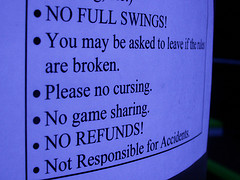Suggesting a Font Color Change is “Like Telling a Black Person to Stop Being Black”
On one of the communities that I run that offers free technical support, we had a member join and post a question in need of some assistance. In the post, they included some short hand for a vulgarity, so I removed the post, as per our normal procedure. They also had a signature violation of sorts. So, I dropped the member a note explaining both.
I noted that their post was also in bright red. This is not a violation and it’s fine if a member wants to use that color. But, it made the post harder to read. So, in the message, I thought I’d include a helpful suggestion that would allow the member to be more likely to receive help from others. I said:
Read More










